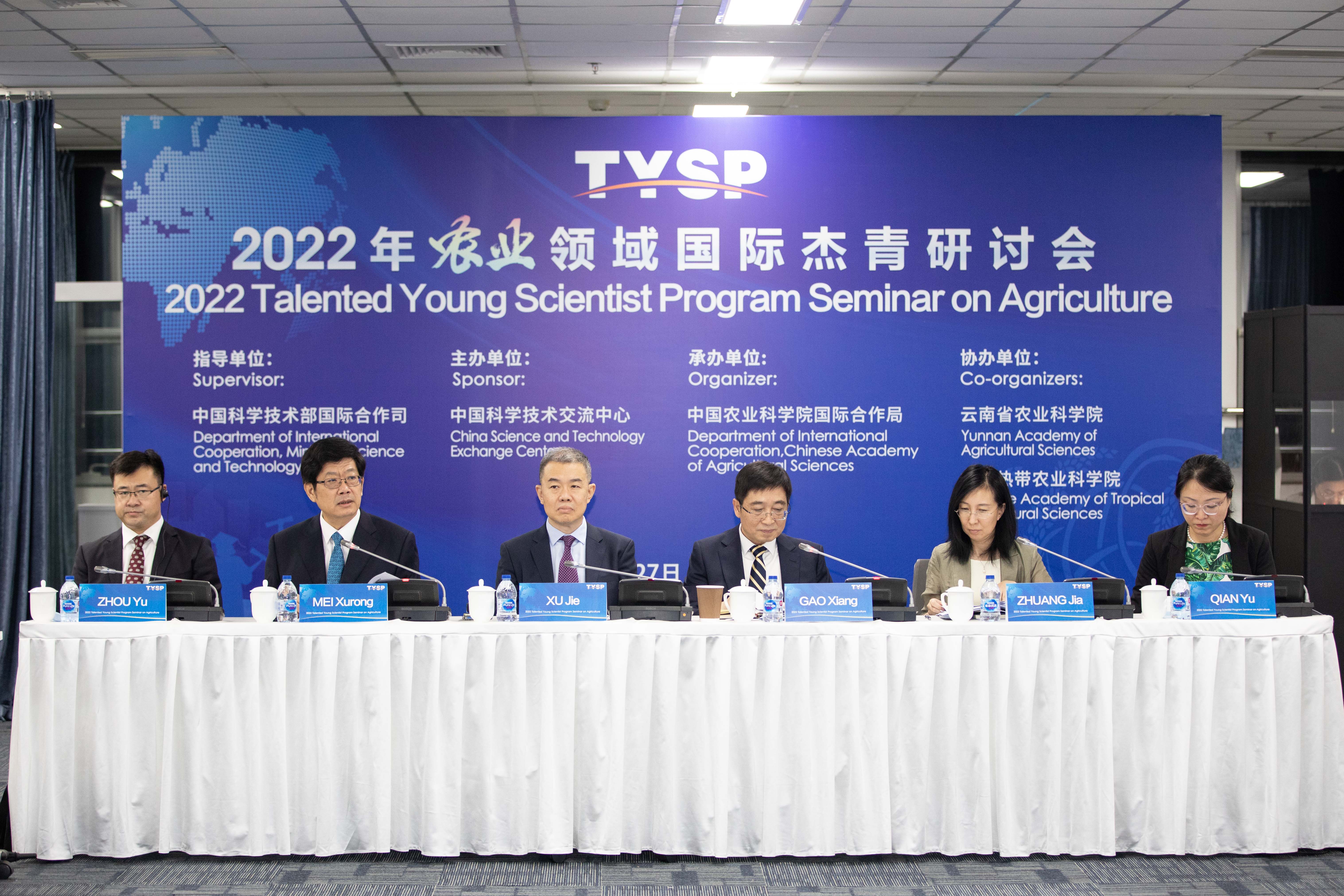By LI Linxu & Zhong Jianli
It is said that friendship between countries lies in amity between their peoples, and amity between peoples lies in heart-to-heart communication.
This sentiment was on display at the 2022 Talented Young Scientist Program Seminar on Agriculture successfully held on July 27, which focused on sci-tech people-to-people exchanges.
Currently, China has established sci-tech cooperation relationships with more than 160 countries and regions.
Over the years, especially since the launch of the Belt and Road sci-tech people-to-people exchanges, a series of programs have been initiated by China to enhance young scientist exchanges and cooperation, including the Talented Young Scientist Program (TYSP) .

The?2022 Talented Young Scientist Program Seminar on Agriculture?is held on July 27.?(PHOTO:?China Science and Technology Exchange Center)
About 260 people participated in the seminar, including representatives from foreign sci-tech authorities, foreign TYSP partner institutions, and outstanding international young scientists. The online livestreaming of the event attracted some 1100 views from various countries.
During the seminar, the participants shared their insights and views on TYSP, and offered their suggestions for further enhancing TYSP's role in sci-tech exchanges particularly among young scientists, expanding the fields of cooperation and exchanges, and regularly collecting feedback from participating individuals and institutions.
In the Q&A session, the young scientists freely expressed their views and asked questions of interest to them. They also had an in-depth discussion on the implementation and operation of TYSP in the post-pandemic period, which shows their recognition and high hopes for TYSP.
The seminar was hosted by China Science and Technology Exchange Center under the guidance of the Department of International Cooperation of the Ministry of Science and Technology of China, organized by the Department of International Cooperation of the Chinese Academy of Agricultural Sciences, and co-organized by the Yunnan Academy of Agricultural Sciences and the Chinese Academy of Tropical Agricultural Sciences.
The trio will conduct a series of experiments in fields such as life science, fluid physics, combustion science and materials science. Notably, this is the first time that fruit flies have been taken on a Chinese space mission as experimental subjects. What made scientists choose fruit flies? What experiment will they undergo?
